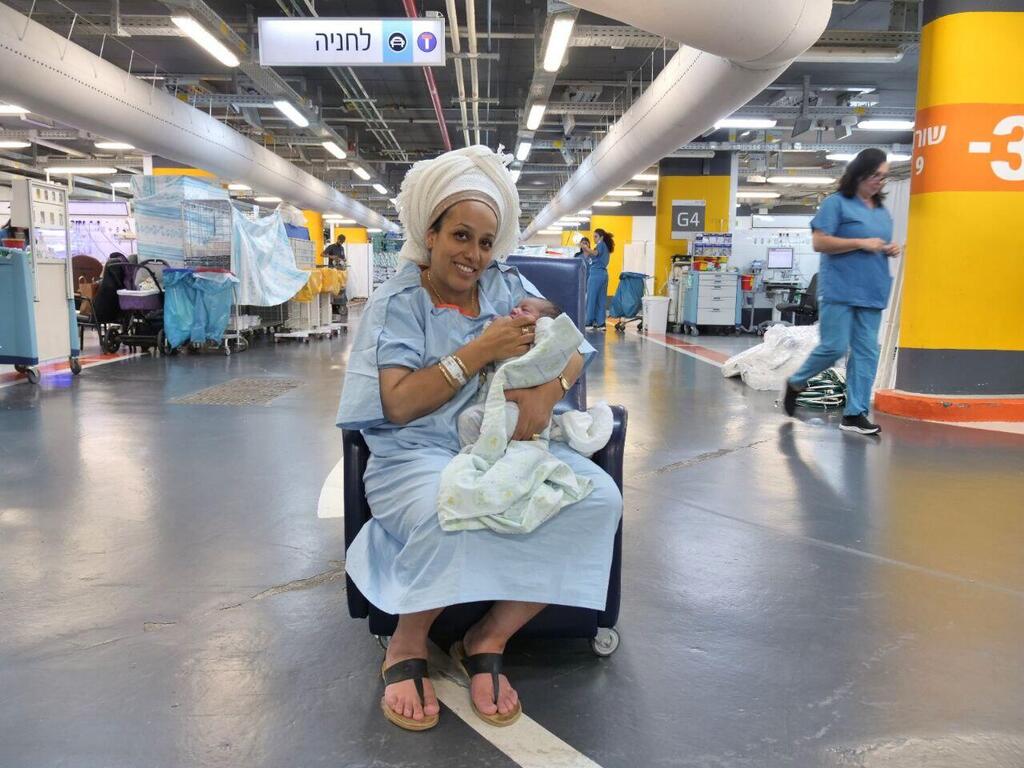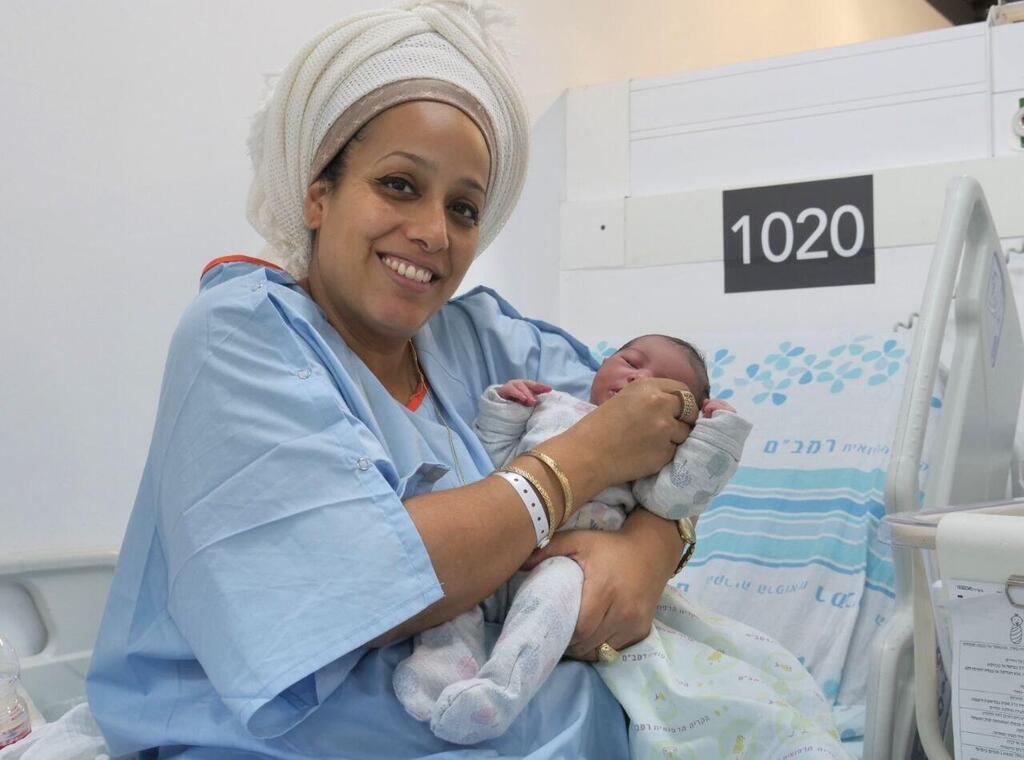Getting your Trinity Audio player ready...
Einat Nissim recently welcomed her 11th child, but this birth was unlike any she had experienced before. She was the first to deliver in the fortified underground facility at Rambam Health Care Campus in Haifa, shortly after the hospital's maternity and delivery services were relocated to the parking garage on sublevel 3.
The newborn, weighing 7.91 lbs., joins the family of 10 other children of Einat, 39, and Moran, 43, from Moshav Ahihud: Tegal, 20; Elhai, 18; Barak, 16; Yinon, 14; Efrat, 12; David, 11; Ateret, 8; Hillel, 5; Yosef, 3; and Chamutal, 2.
"I arrived at Rambam on Sunday afternoon and delivered just half an hour later," Nissim recalls. "Before I left home, my mother mentioned there might be renovations at the maternity ward in Rambam. I assured her, 'Mom, I've delivered all my children at Rambam. I trust them and always go there.' When I arrived, they informed me that the delivery room was on sublevel 1, which seemed odd, but then they directed us further down to sublevel 3."
She adds: "I realized the move was due to the war, but I had no idea the location was a parking garage. The delivery was swift and everything went smoothly. The midwives were wonderful, providing great support and assistance. It was only after the birth that I noticed my surroundings, and my husband pointed out, 'You know we're actually in a car parking garage.' It's astonishing how they transformed it into a fully functioning hospital in just one day. It's surreal. I wondered if it would be quiet at night, and indeed it was, except for the sweet sounds of the newborns."
Nissim notes that there are quite a few other mothers around her. "It's not the level of privacy I had during my previous births but, given the circumstances, the staff is doing everything they can to make us feel comfortable and ensure our privacy," she says.
Michal Kranzler, director of Nursing, Division of Gynecology and Obstetrics at Rambam Health Care Campus, explains that she and her staff have learned many lessons from their experiences during the Second Lebanon War, which are now being applied to the current situation. "At that time, our approach was more medically focused, but now we prioritize the mother's experience, her comfort and her emotional support, while ensuring the safety of both mother and child. In addition to being in the safest bunker possible, this is achieved through a slightly different care model that enables mothers to stay with their companions and newborns at all times, known professionally as 'zero separation.'"
Kranzler adds: "The current situation is challenging for both our mothers and our staff. Many of us are balancing our duties at Rambam with what's happening at home or on the front lines. However, we are dedicated to doing everything we can for the women who come to us, allowing them to concentrate on what truly matters now: their childbirth and the newborns they are bringing into the world."





